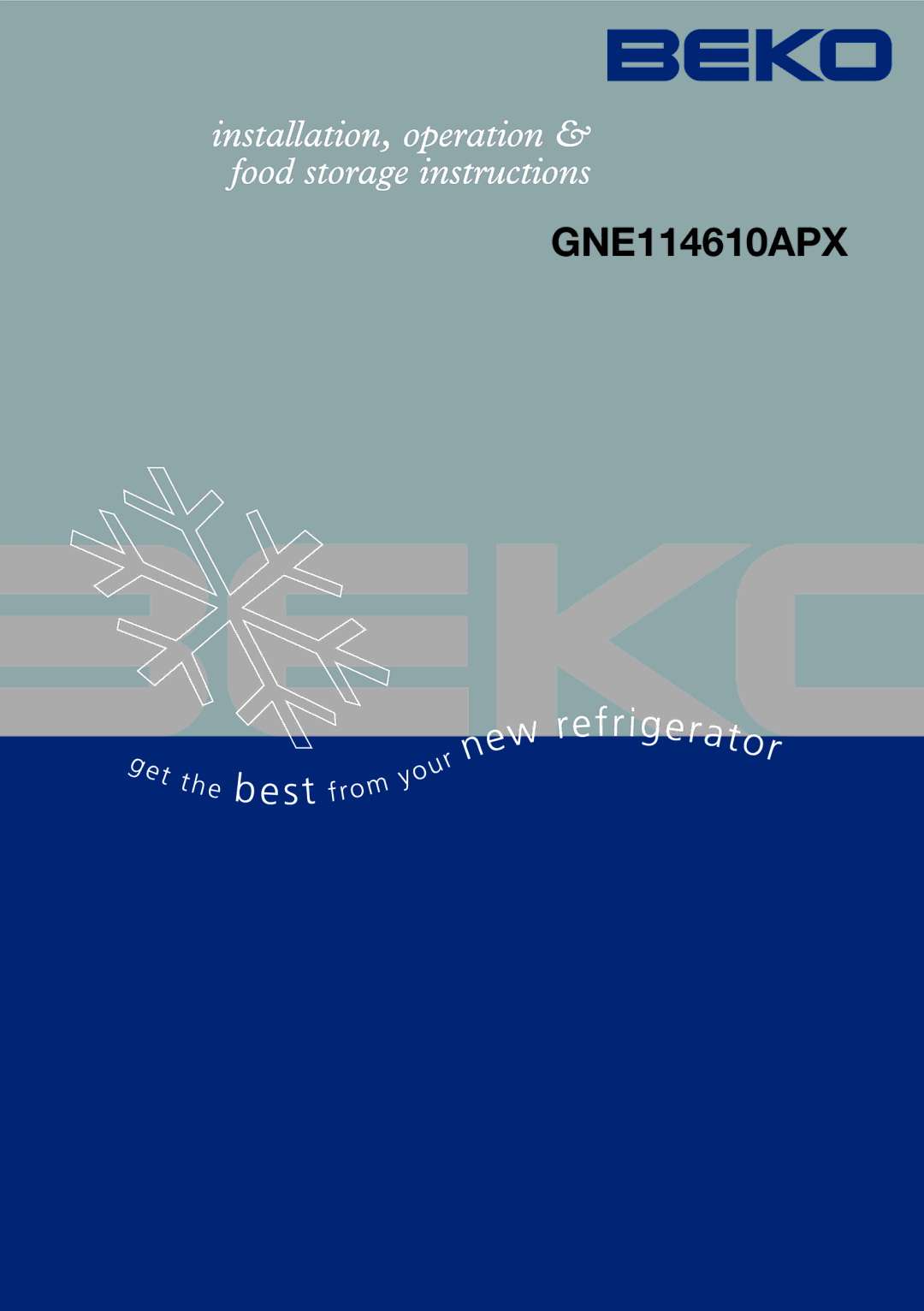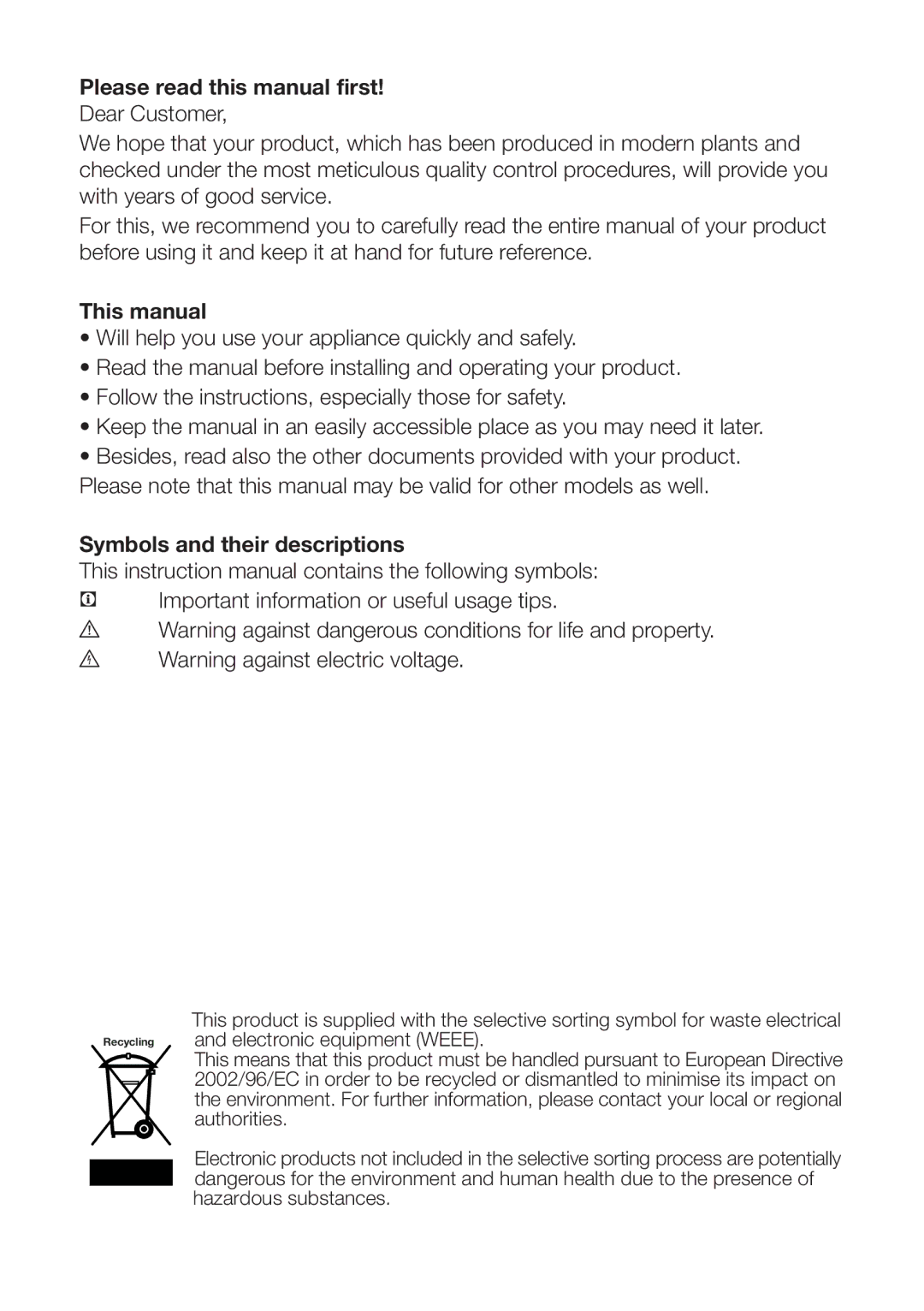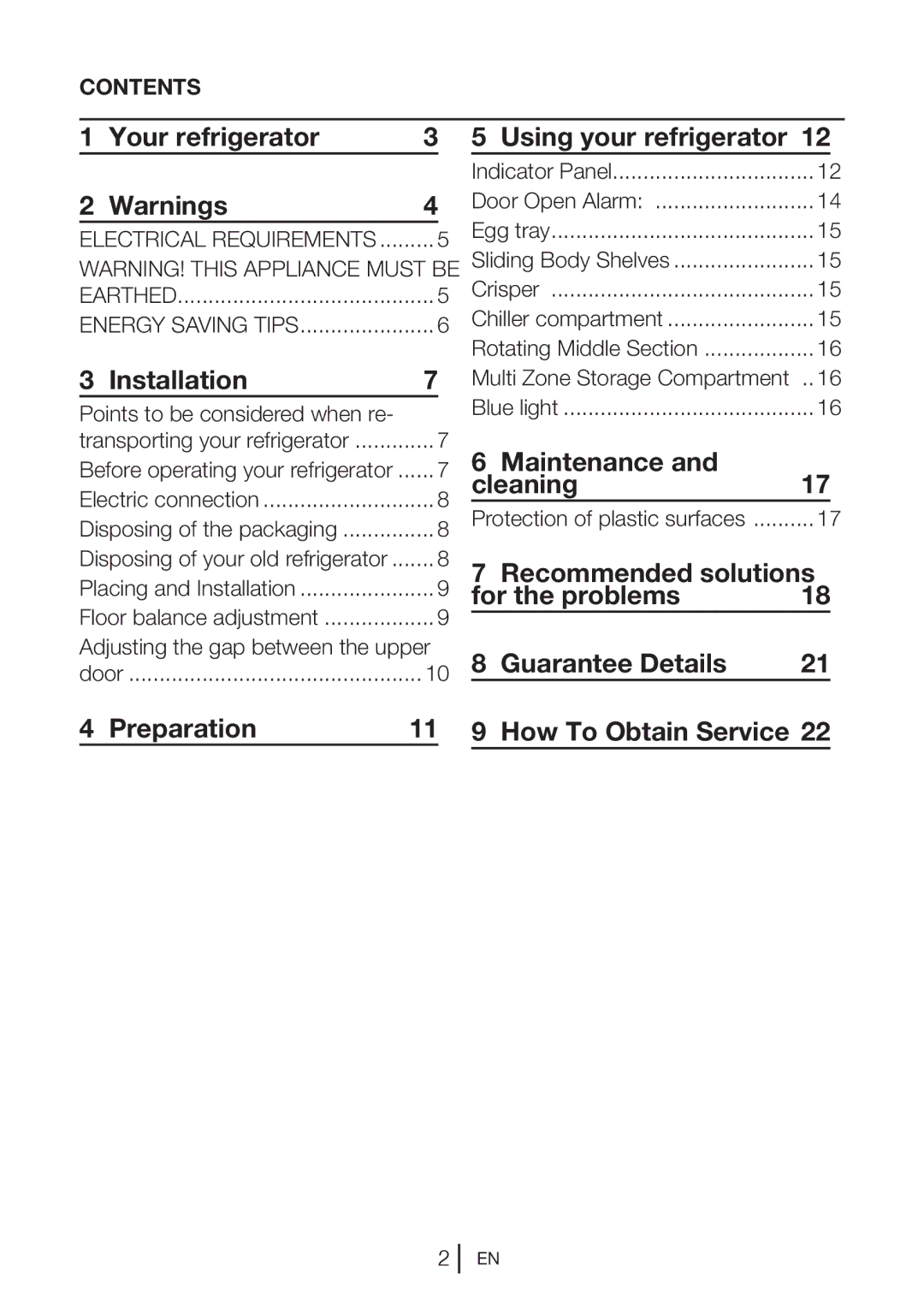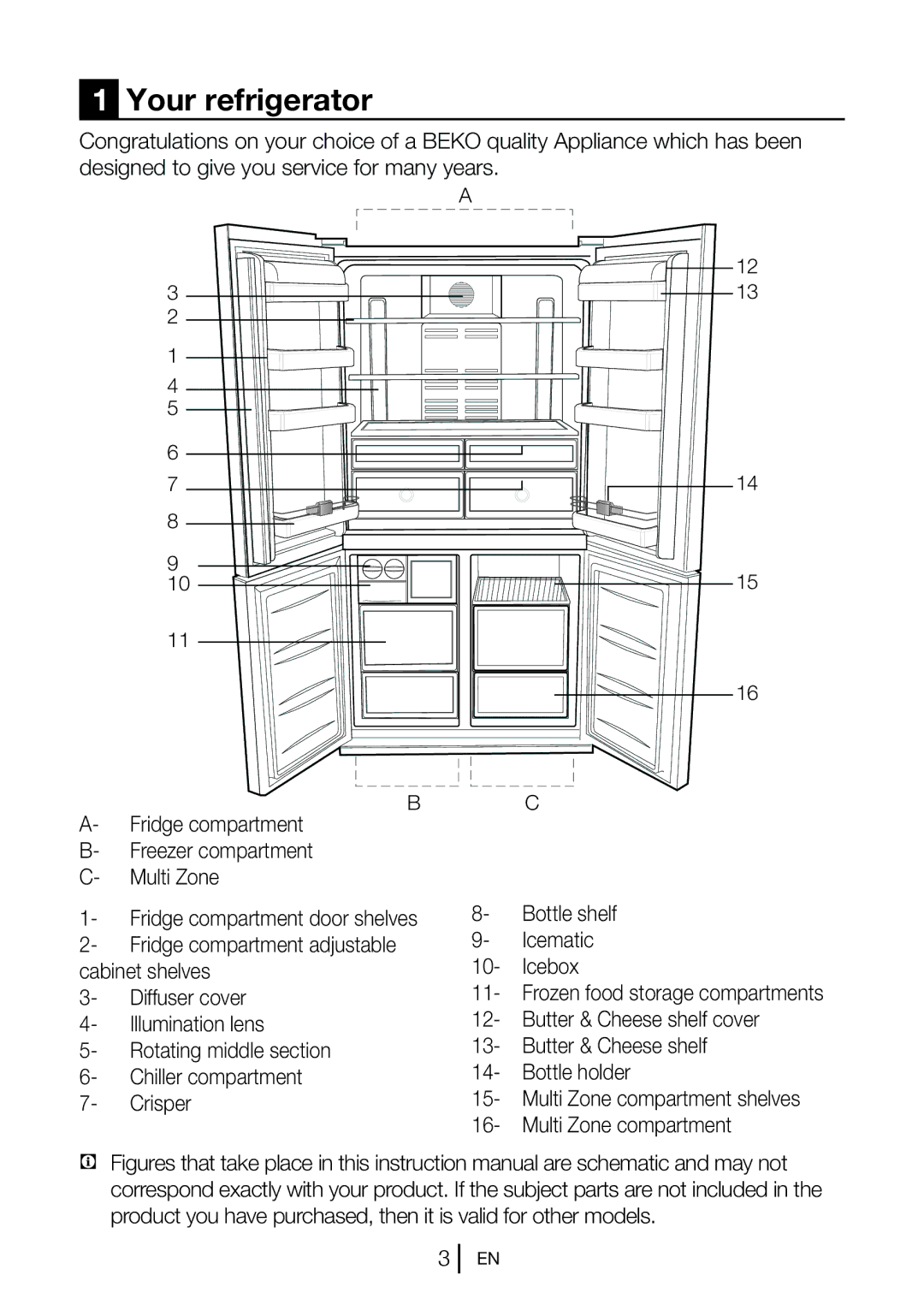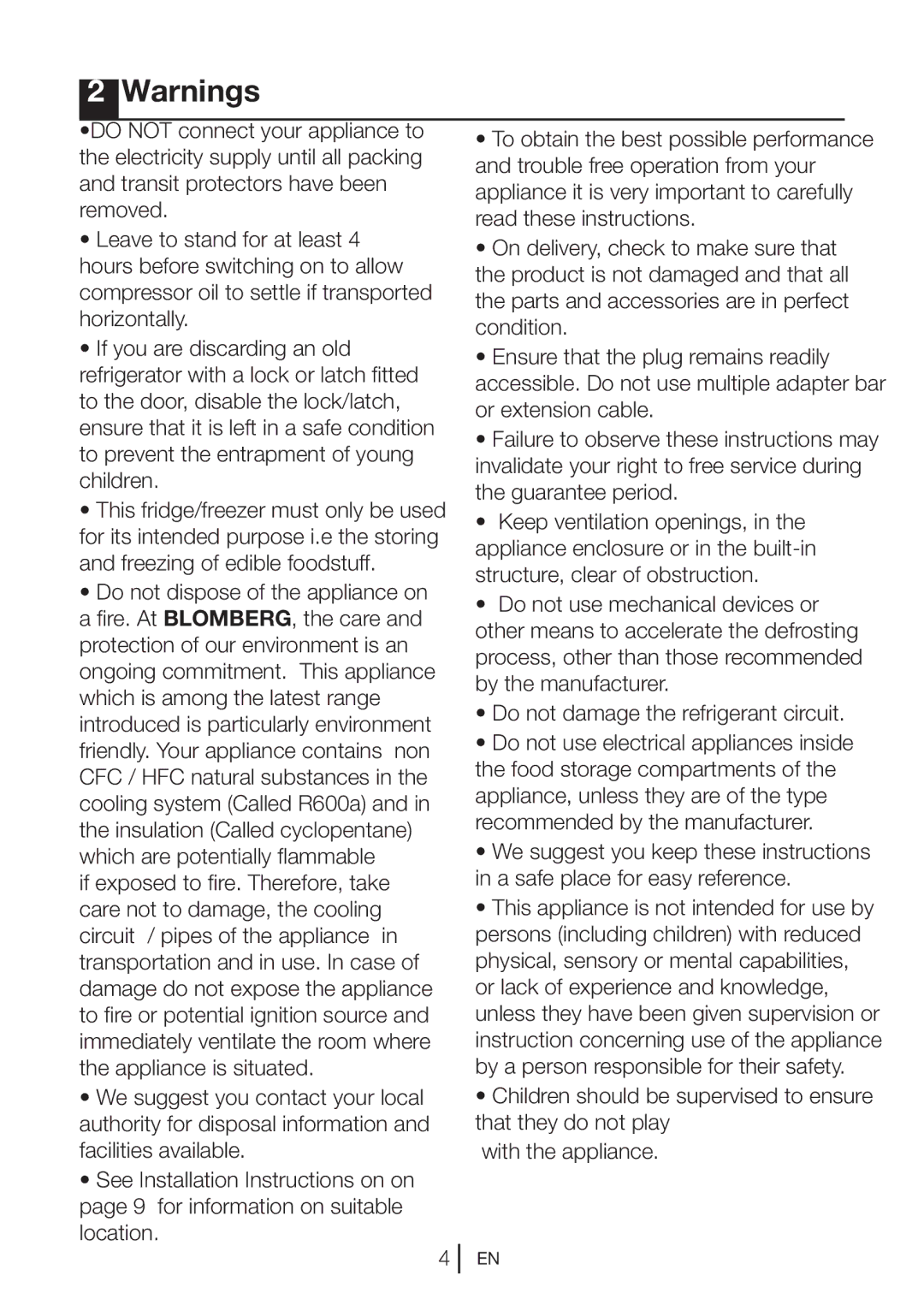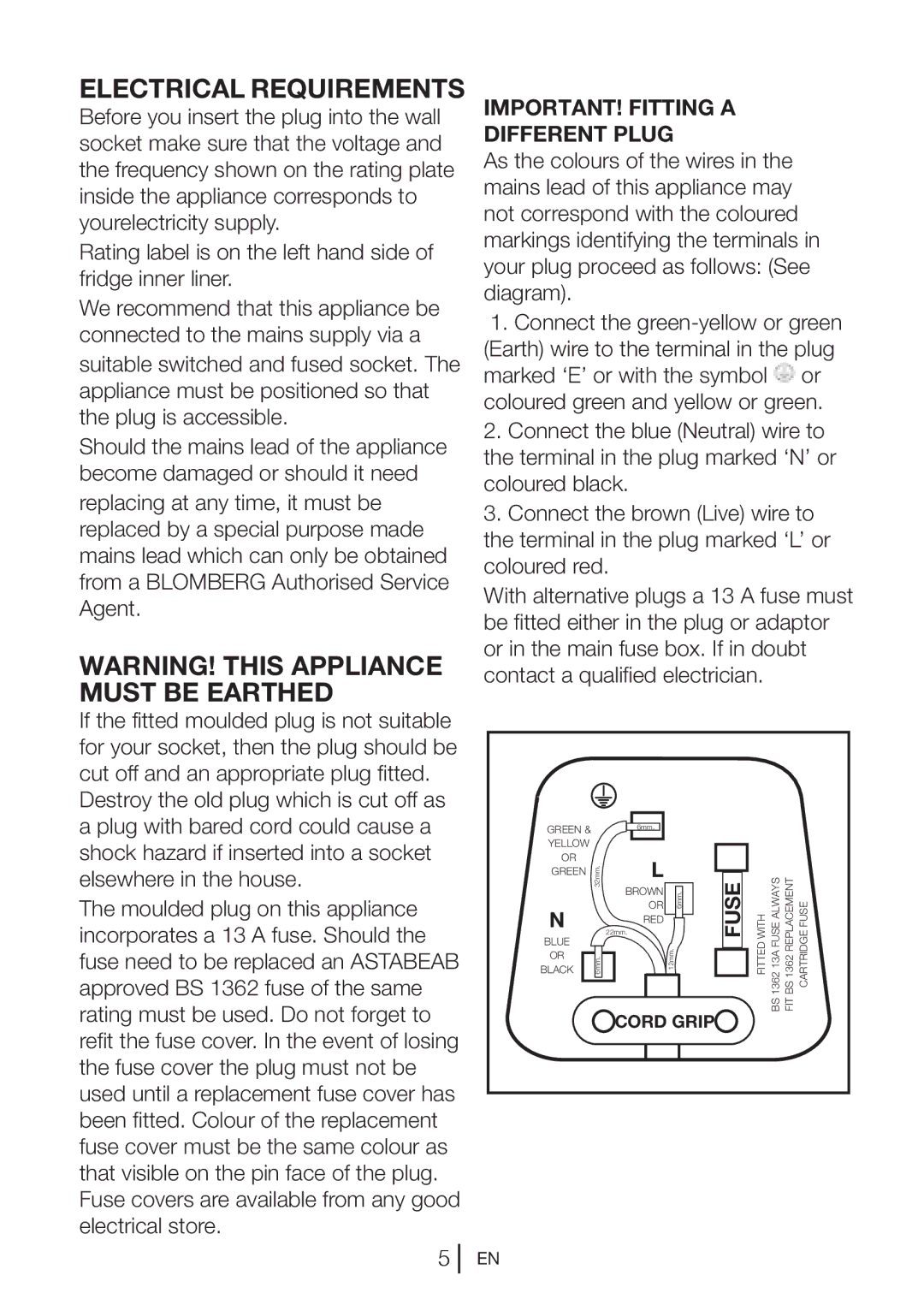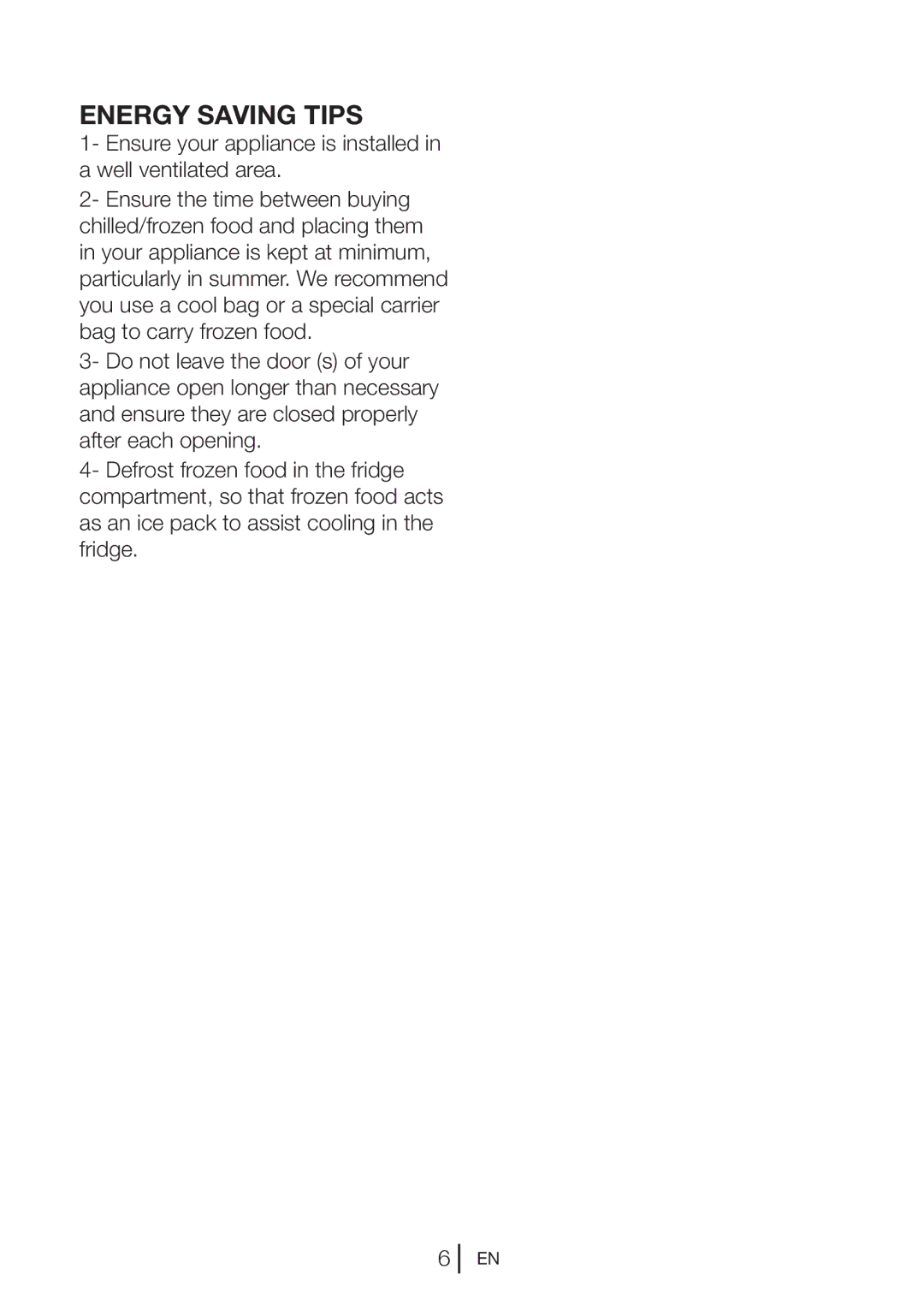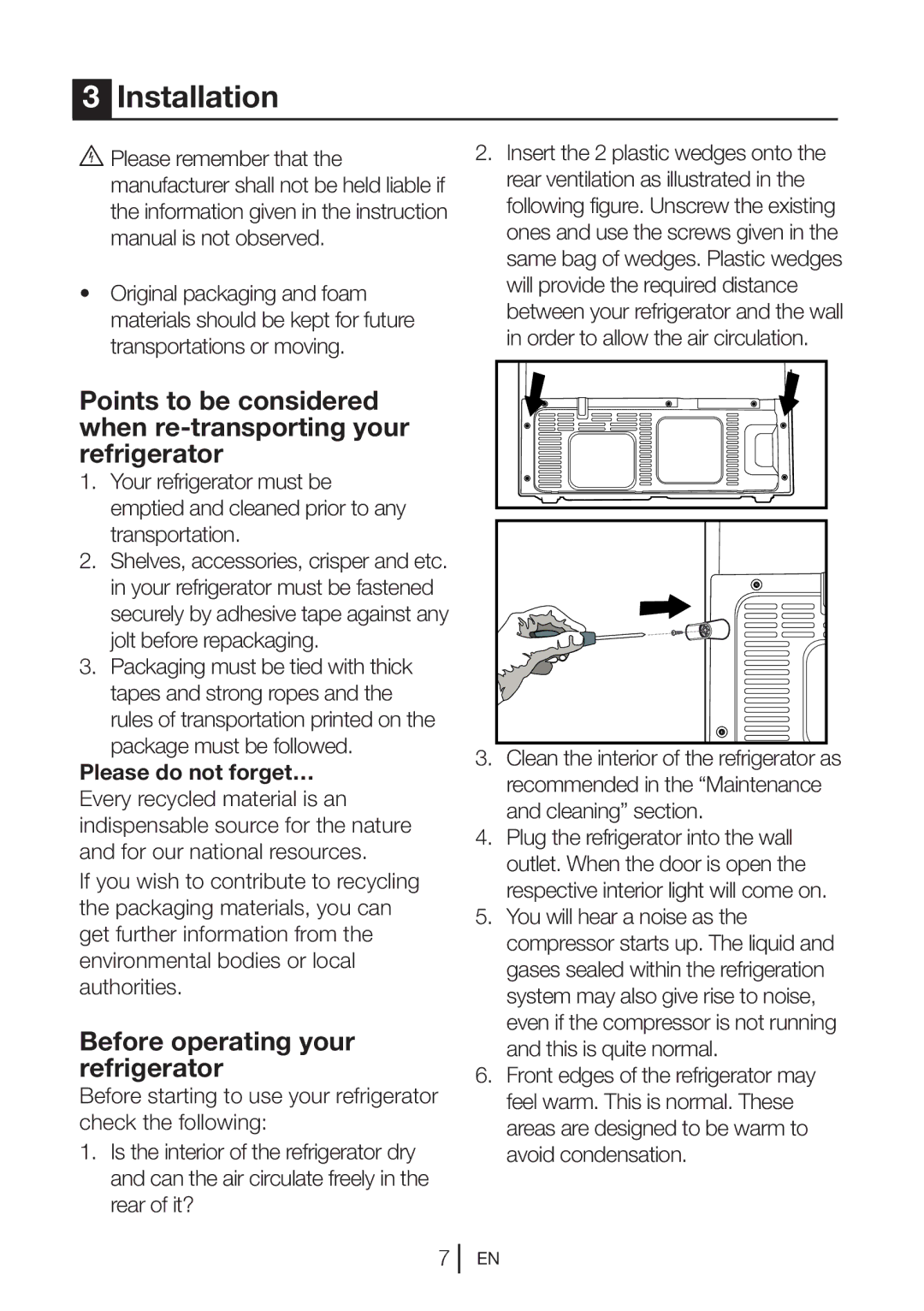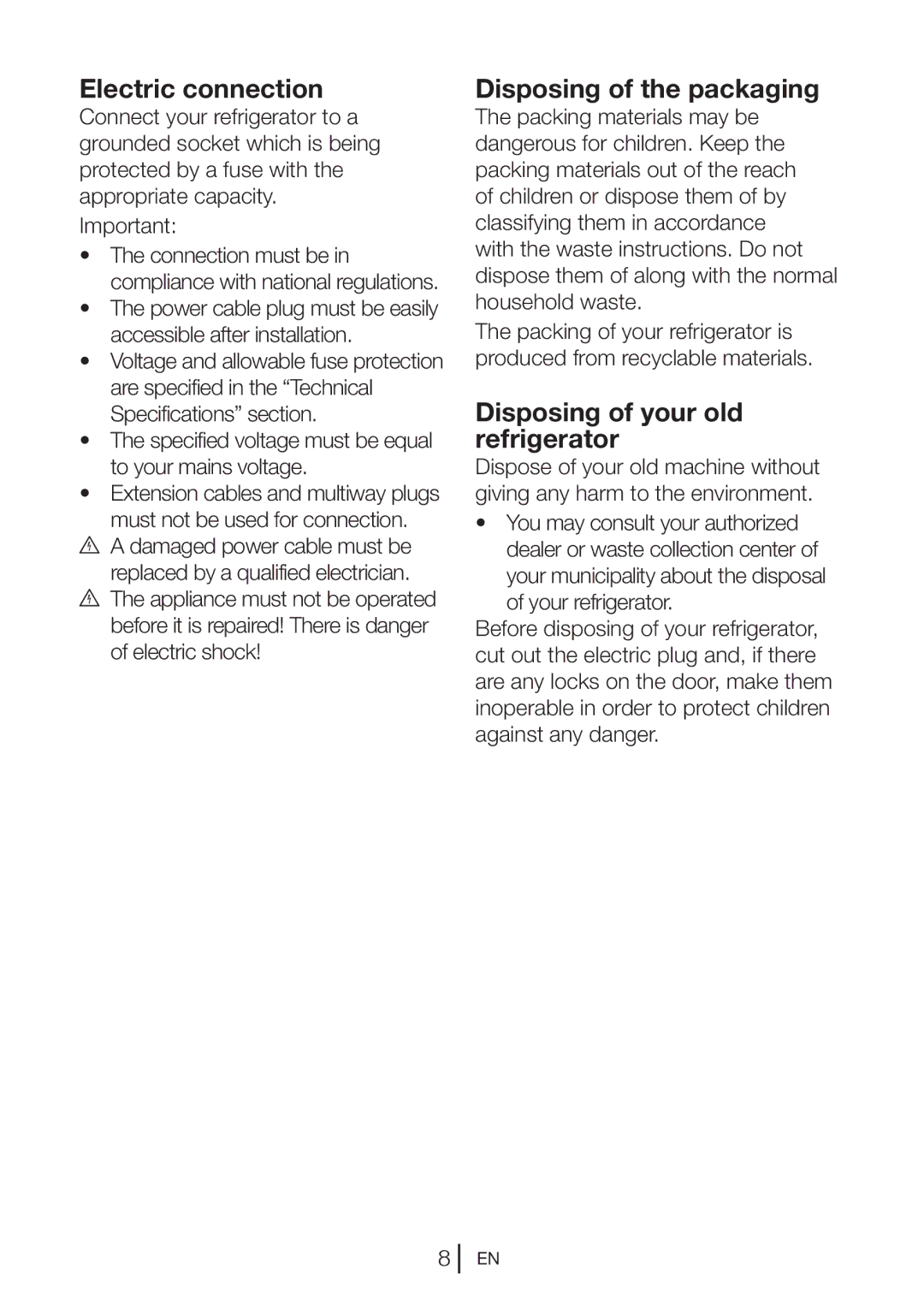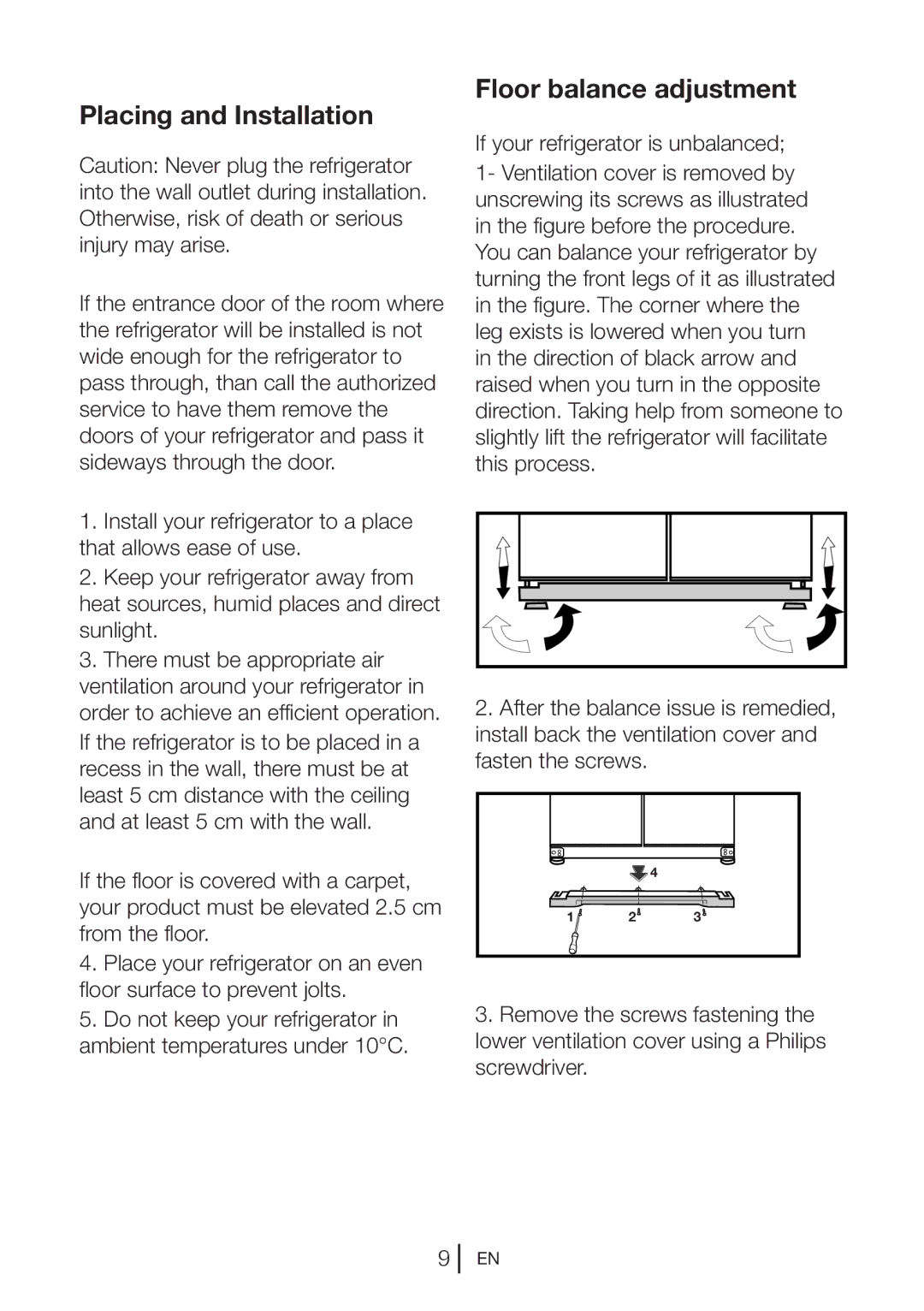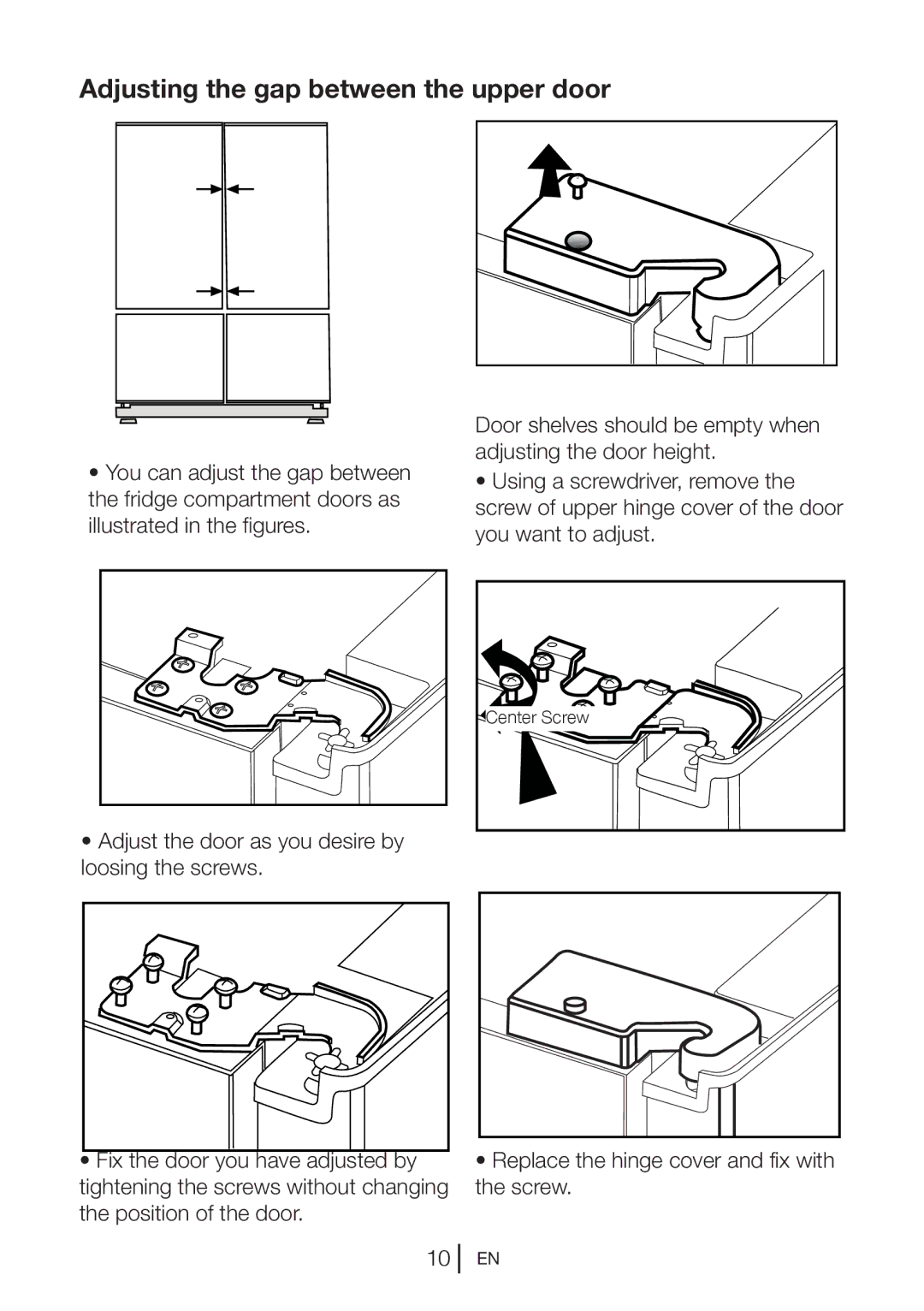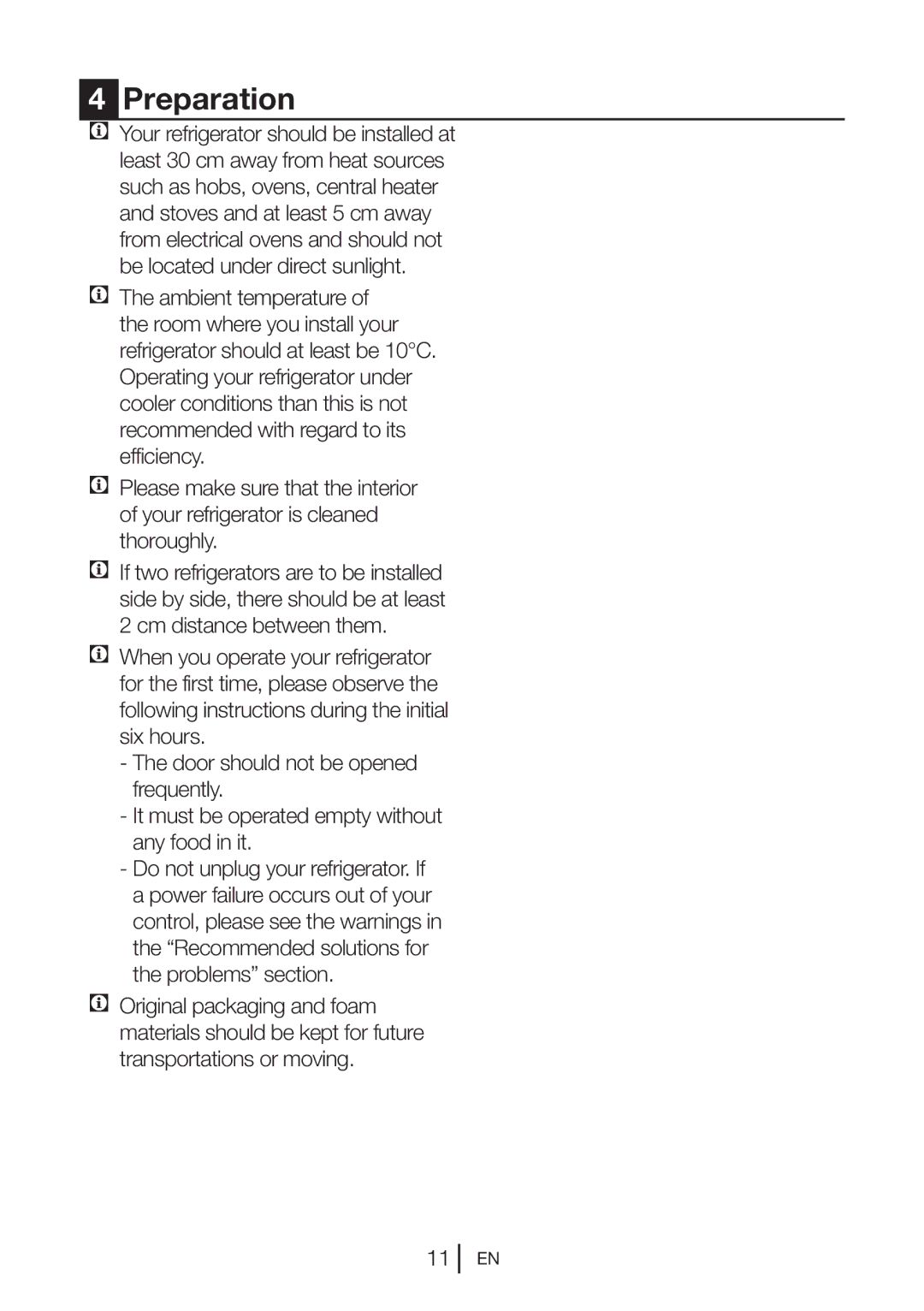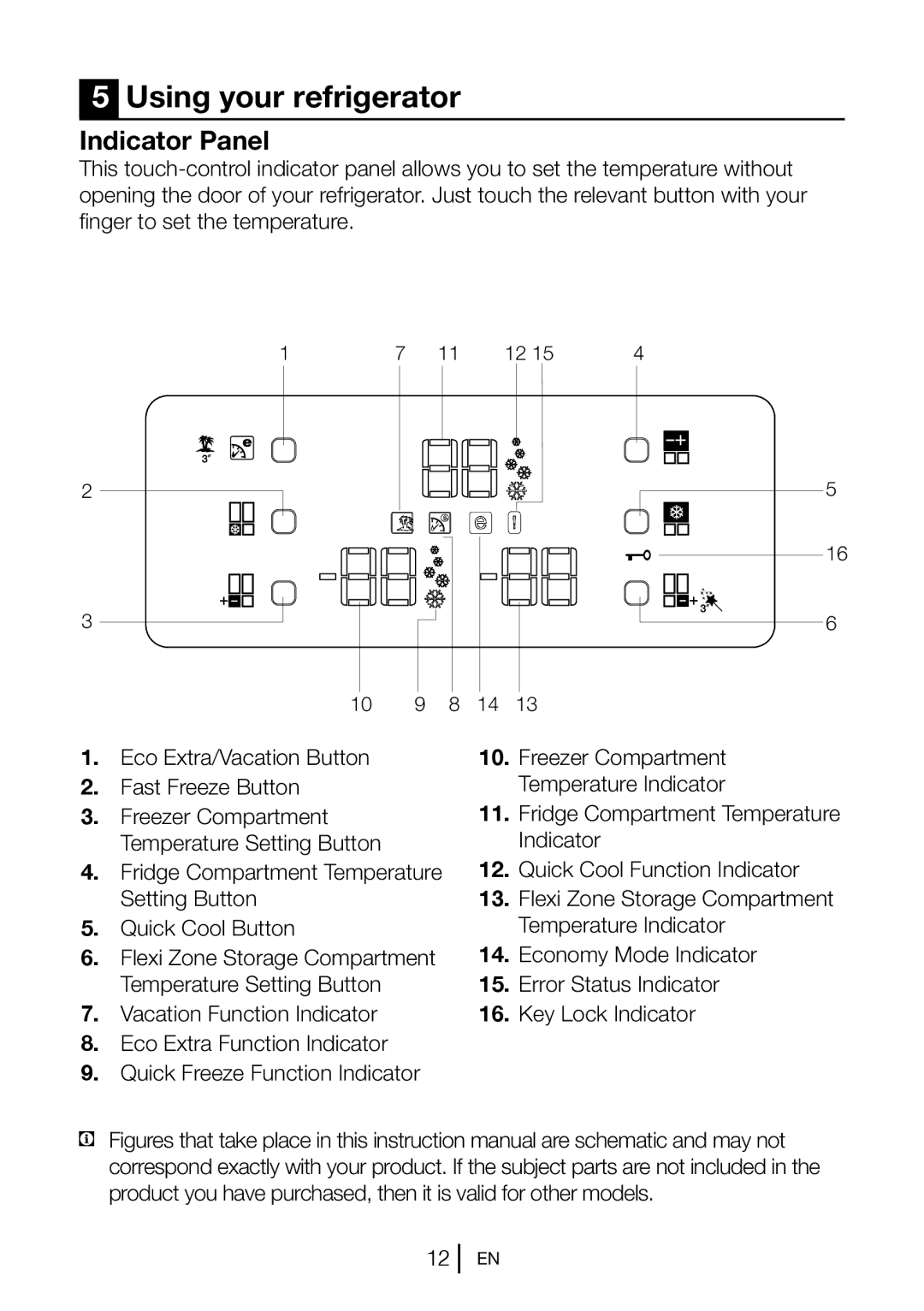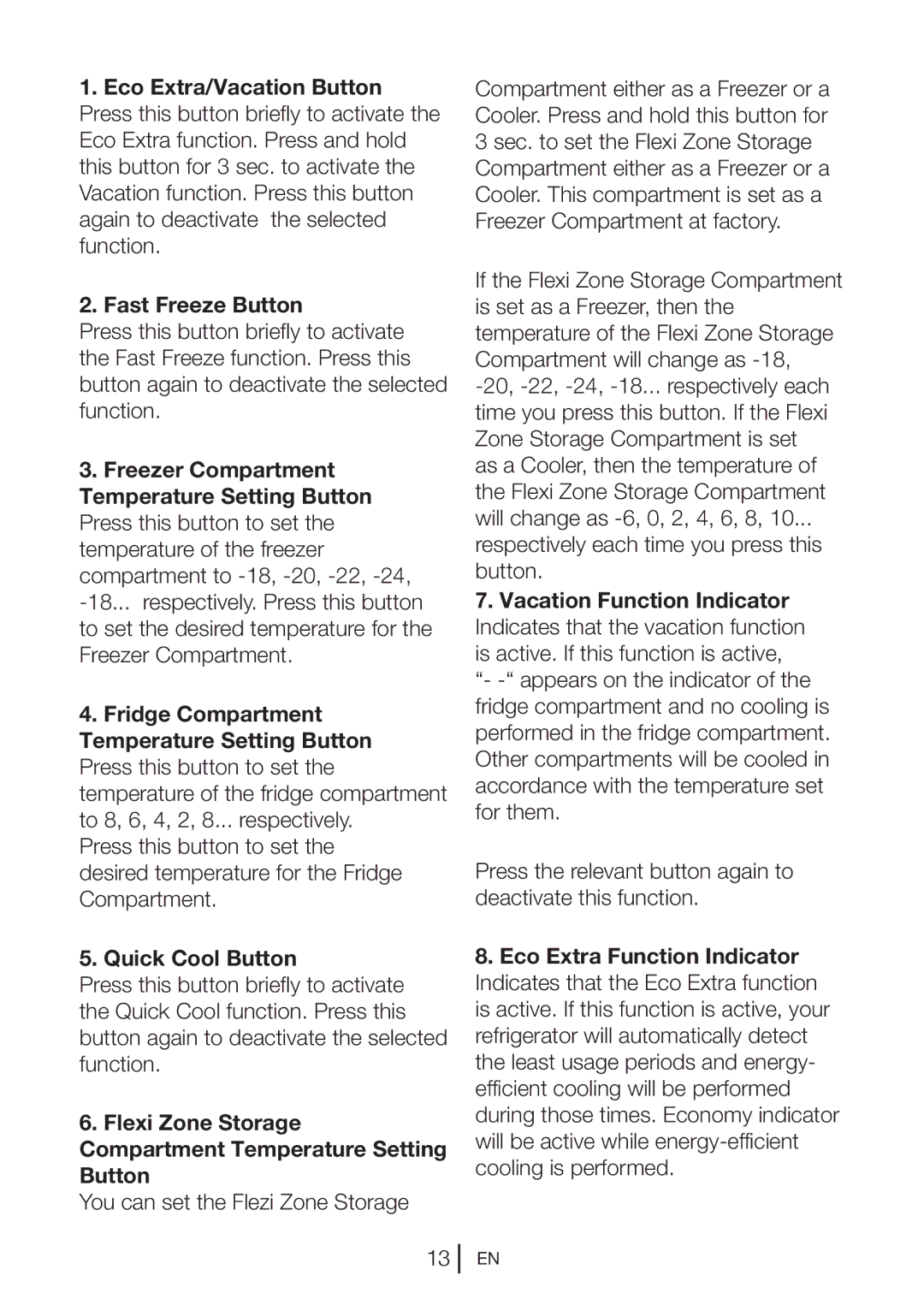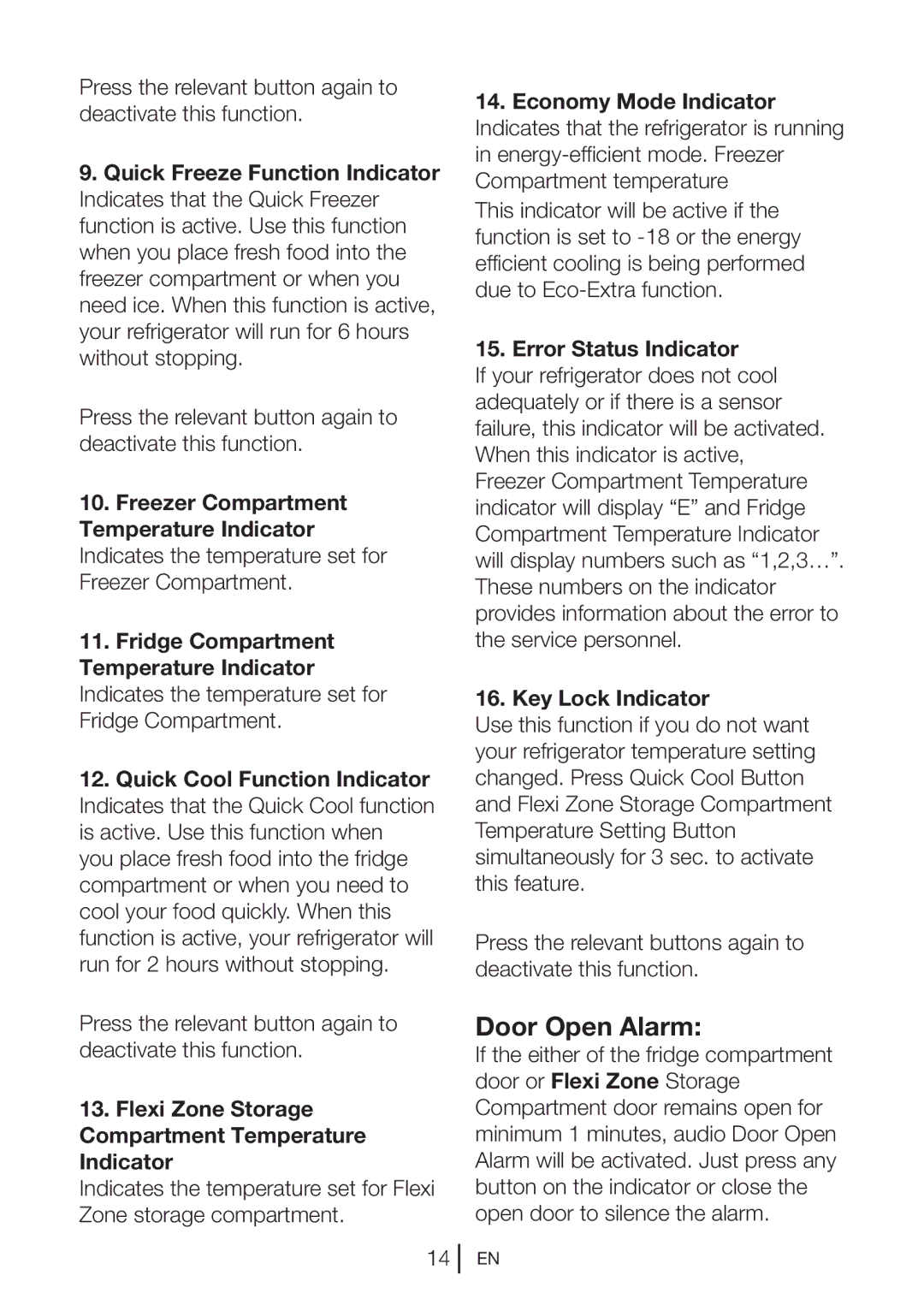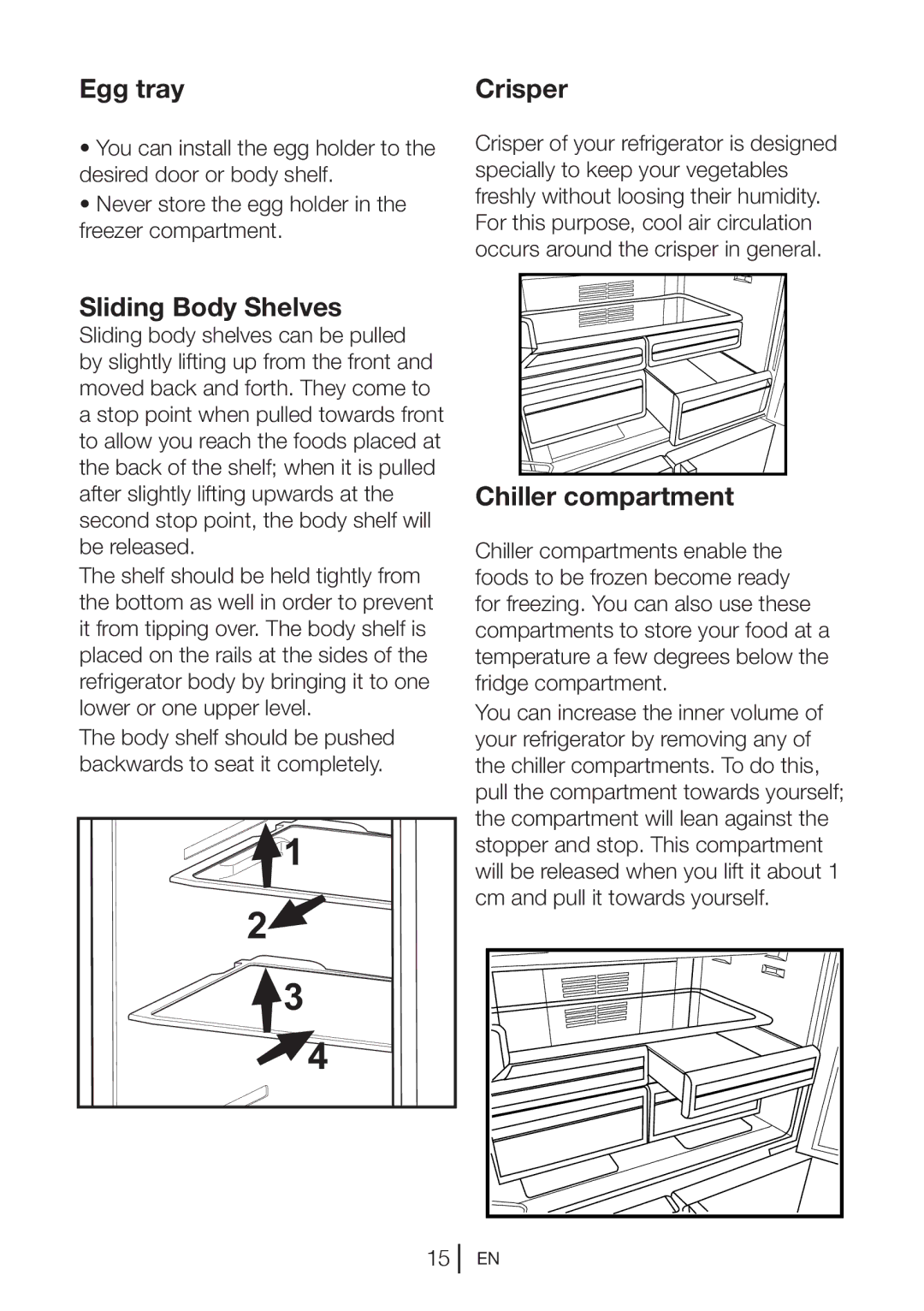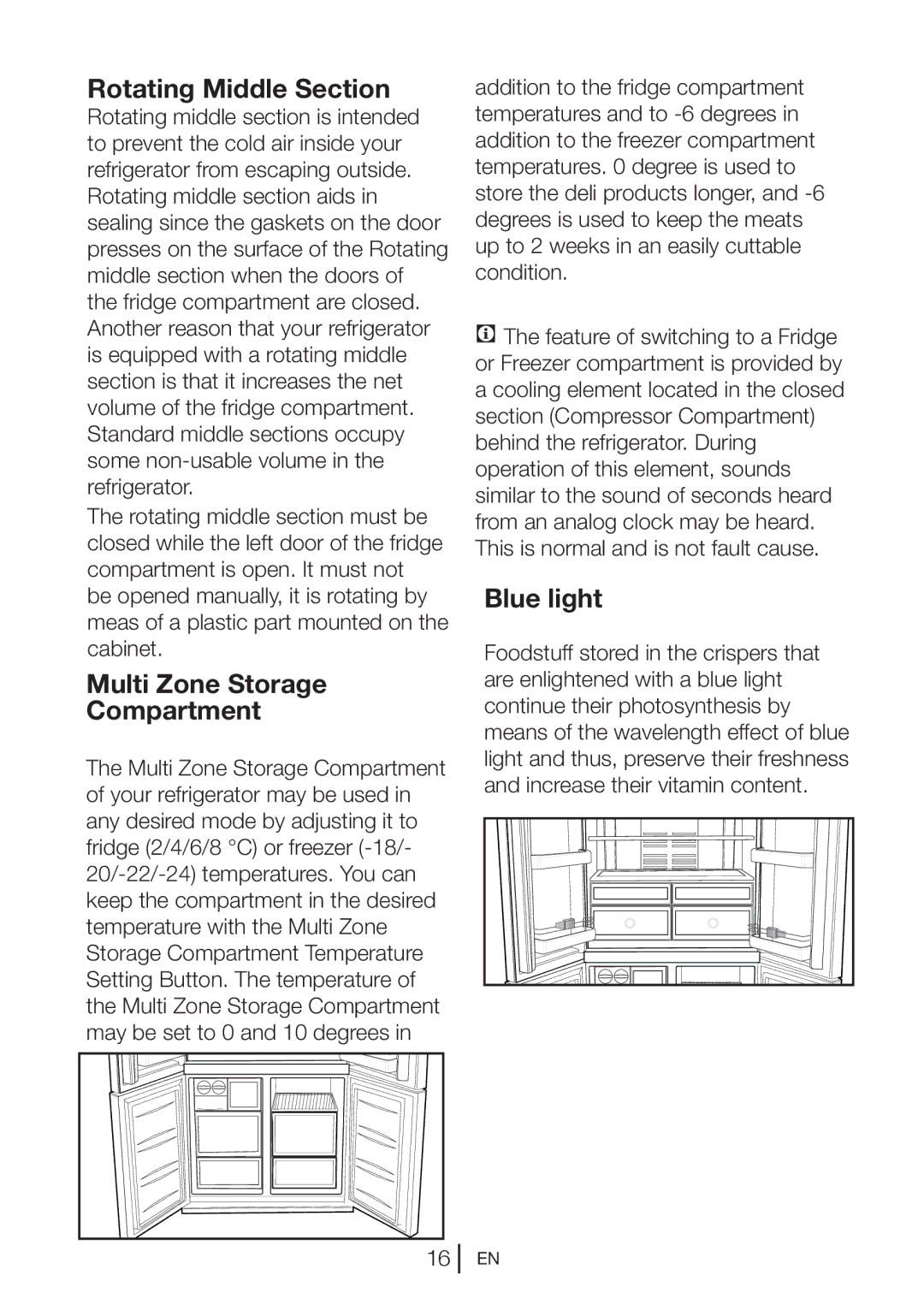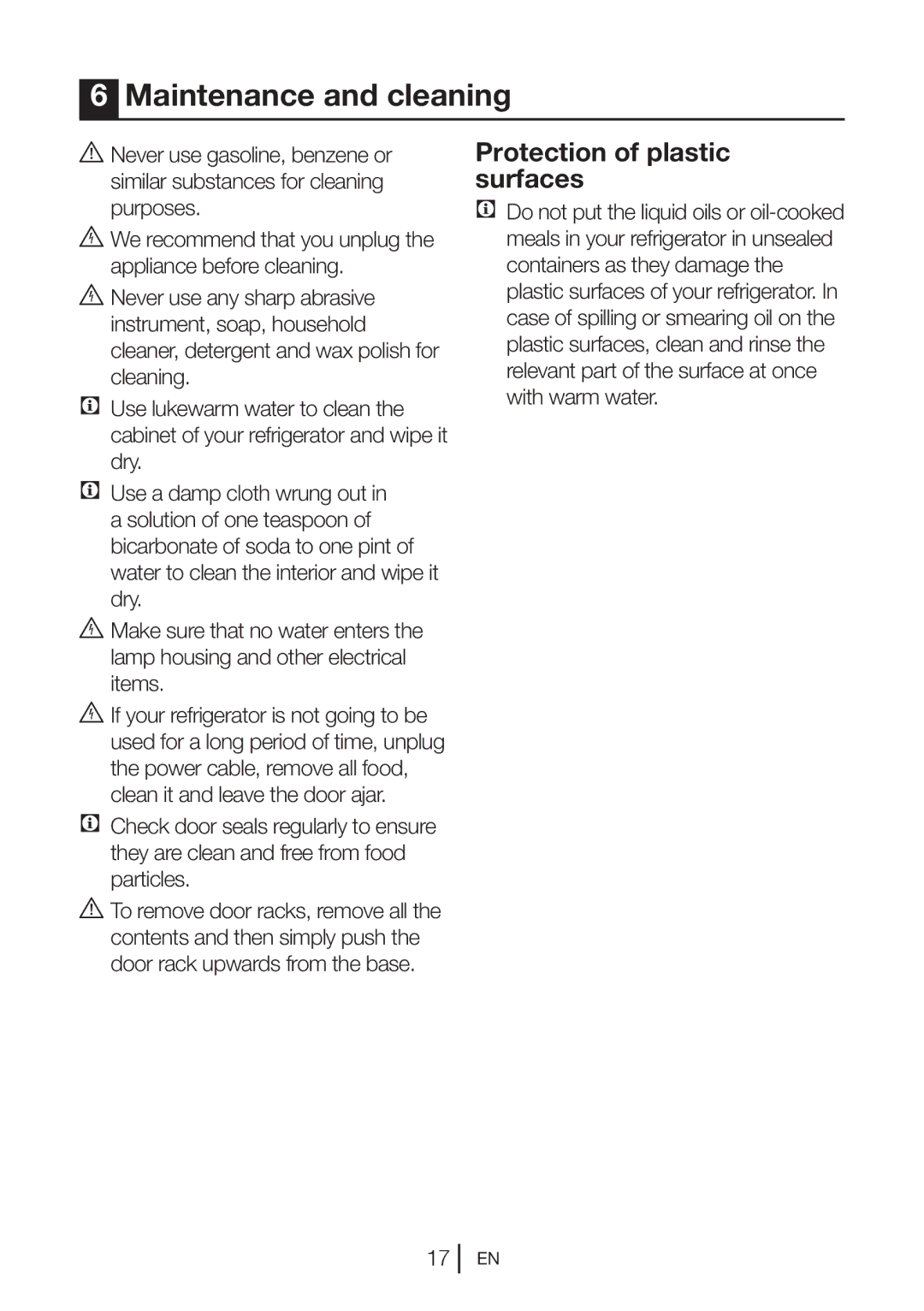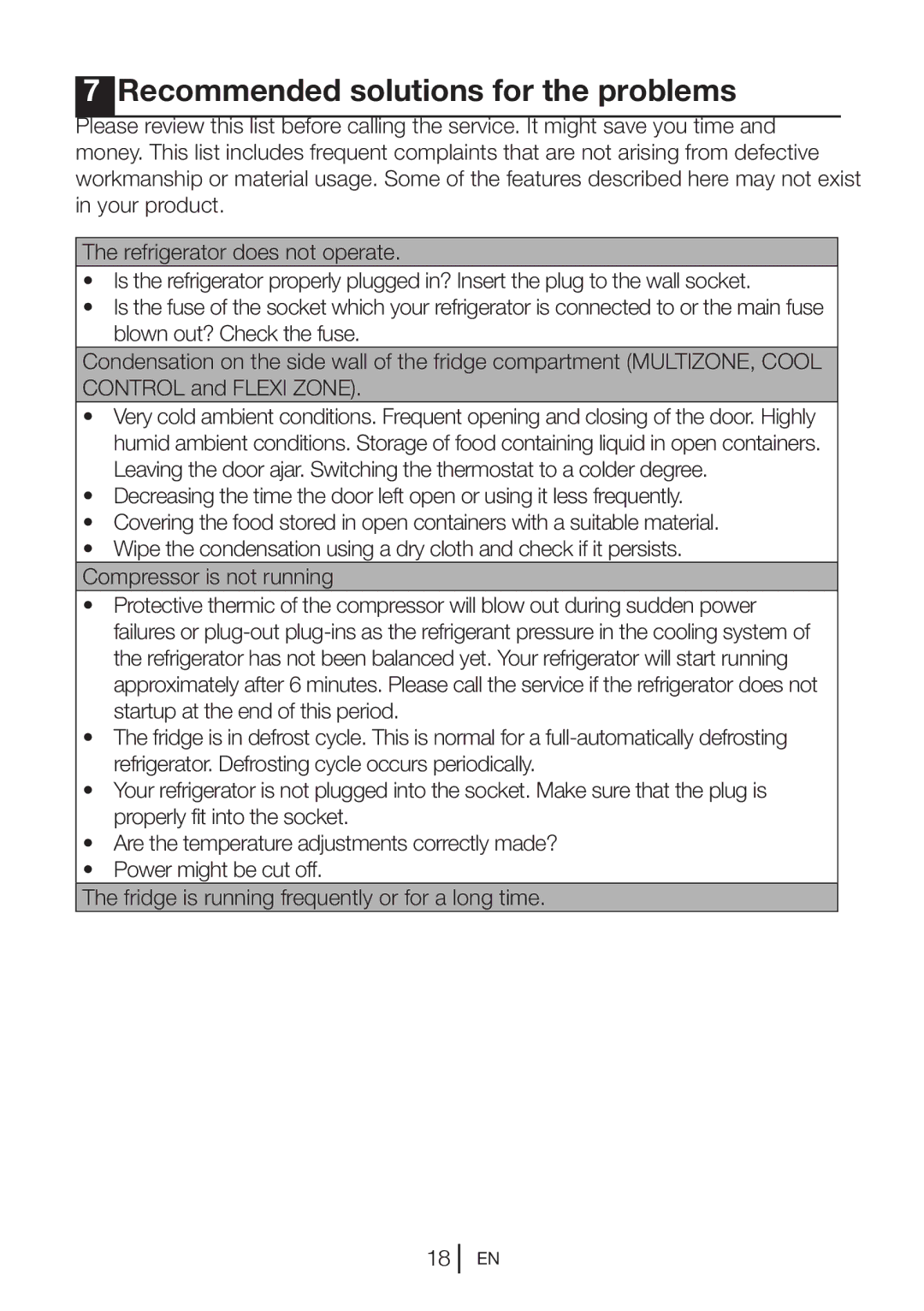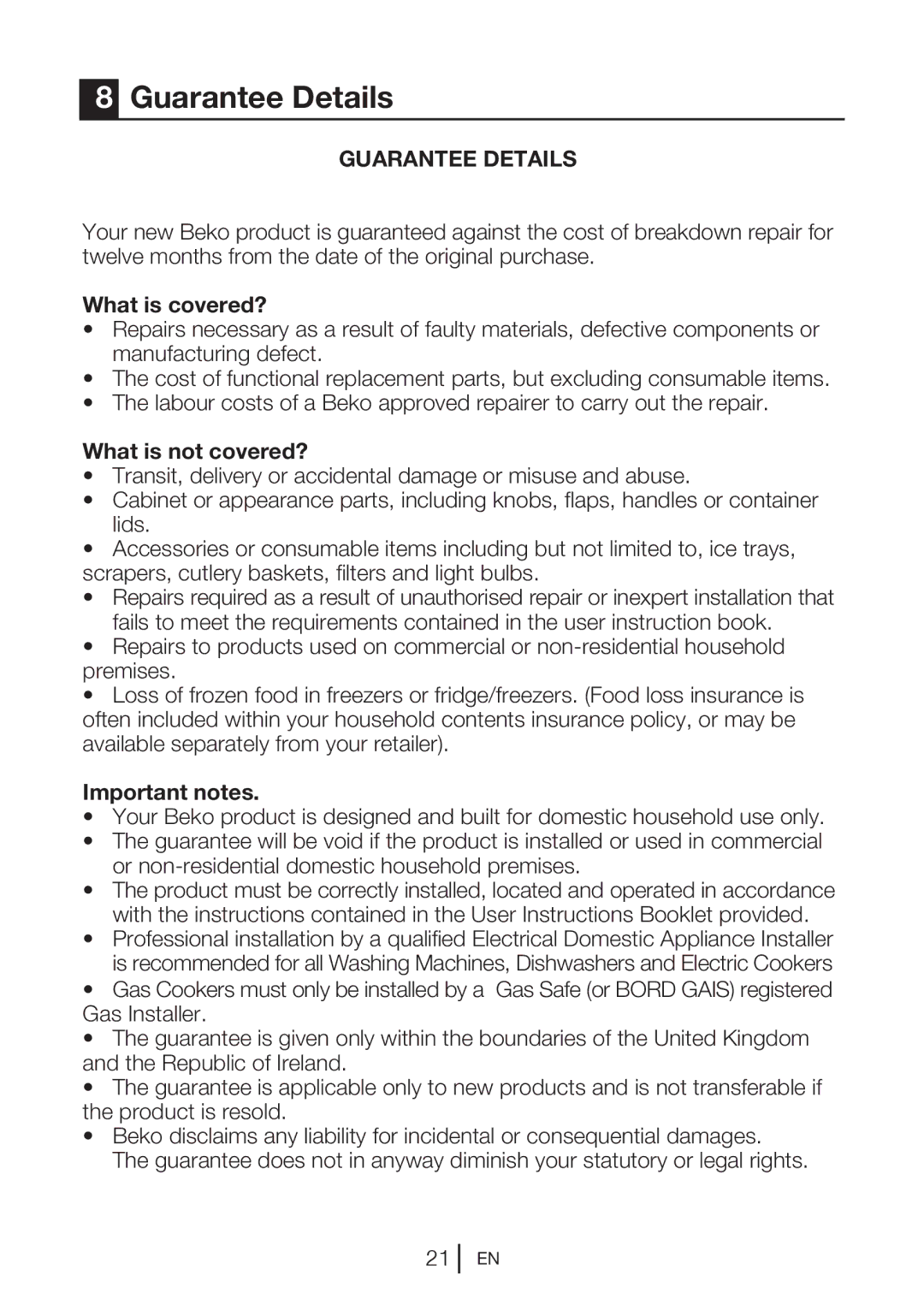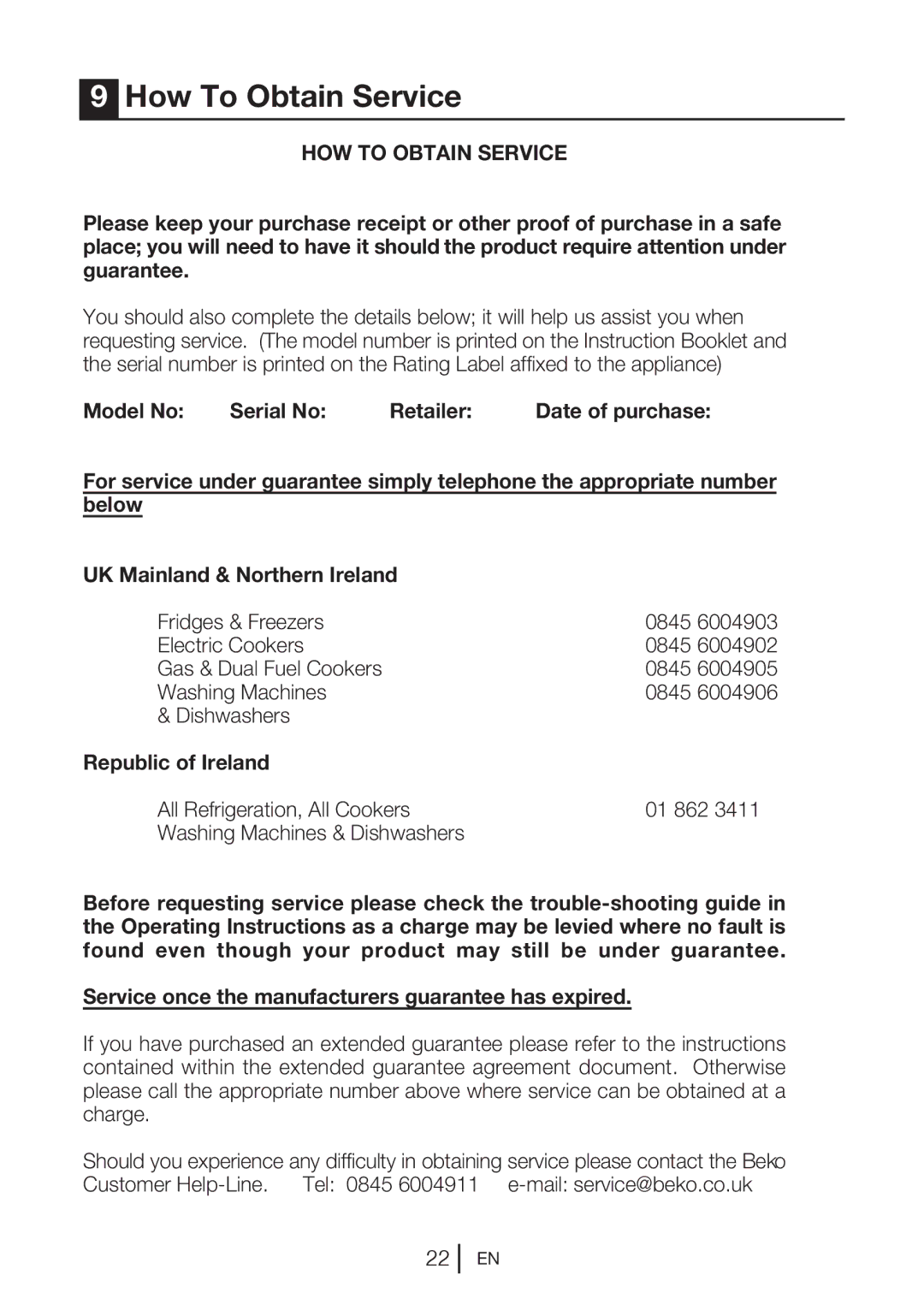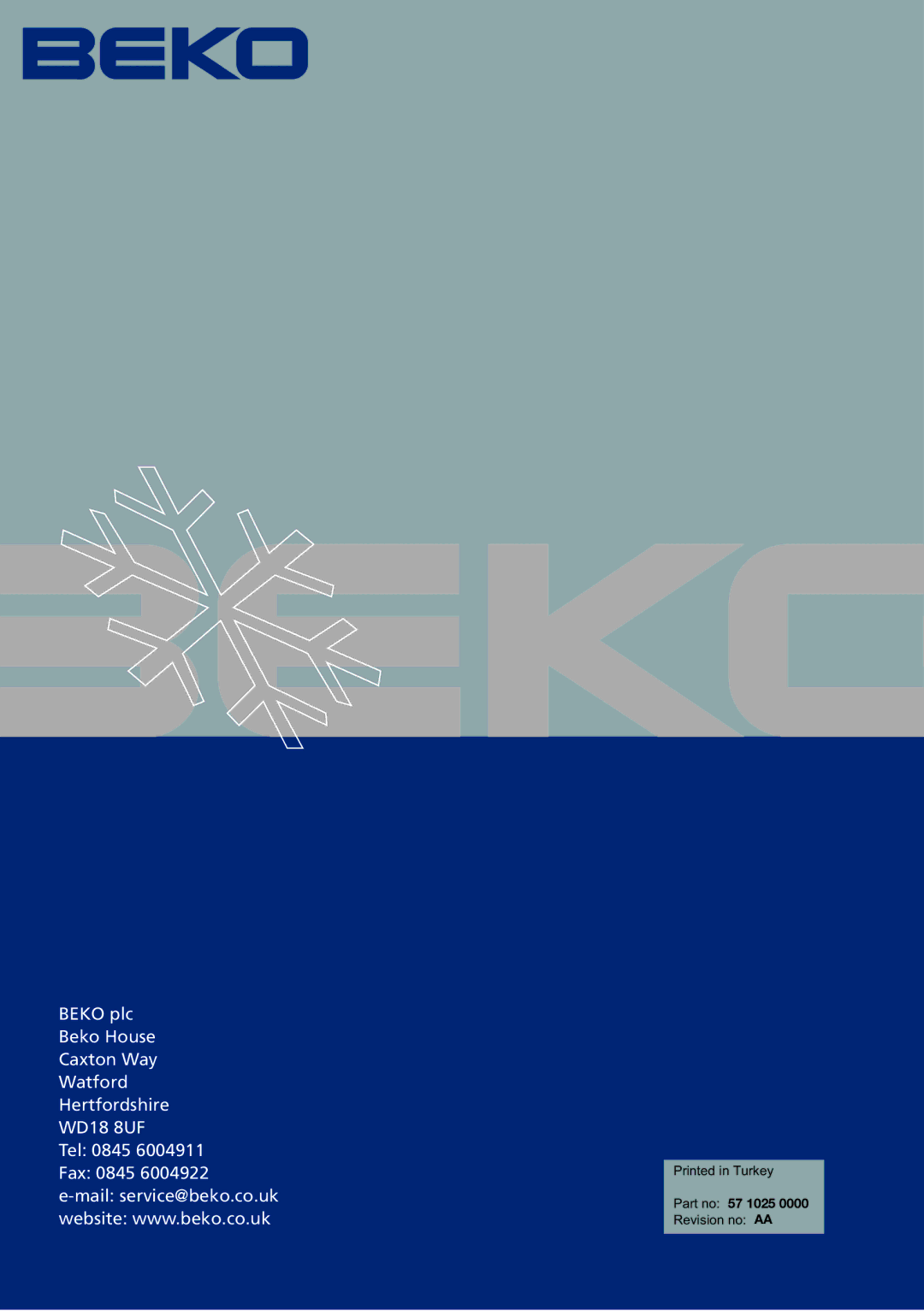
•The operating performance of the refrigerator may change due to the changes in the ambient temperature. It is normal and not a fault.
Vibrations or noise.
•The floor is not even or it is weak. The refrigerator rocks when moved slowly. Make sure that the floor is strong enough to carry the refrigerator, and level.
•The noise may be caused by the items put onto the refrigerator. Items on top of the refrigerator should be removed.
There are noises coming from the refrigerator like liquid spilling or spraying.
•Liquid and gas flows happen in accordance with the operating principles of your refrigerator. It is normal and not a fault.
There is a noise like wind blowing.
•Fans are used in order to cool the refrigerator. It is normal and not a fault.
Condensation on the inner walls of refrigerator.
•Hot and humid weather increases icing and condensation. It is normal and not a fault.
•Doors might have been left ajar; make sure that the doors are closed fully.
•Doors might have been opened frequently or left ajar for a long time; open them less frequently.
Humidity occurs on the outside of the refrigerator or between the doors.
•There might be humidity in the air; this is quite normal in humid weather. When the humidity is less, condensation will disappear.
Bad odor inside the refrigerator.
•Inside of the refrigerator must be cleaned. Clean the inside of the refrigerator with a sponge, lukewarm water or carbonated water.
•Some containers or package materials might cause the smell. Use a different container or different brand packaging material.
The door is not closing.
•Food packages may prevent the door's closing. Replace the packages that are obstructing the door.
•The refrigerator is not completely upright on the floor and rocking when slightly moved. Adjust the elevation screws.
•The floor is not level or strong. Make sure that the floor is level and capable to carry the refrigerator.
Crispers are stuck.
•The food might be touching the ceiling of the drawer. Rearrange food in the drawer.
20
EN
